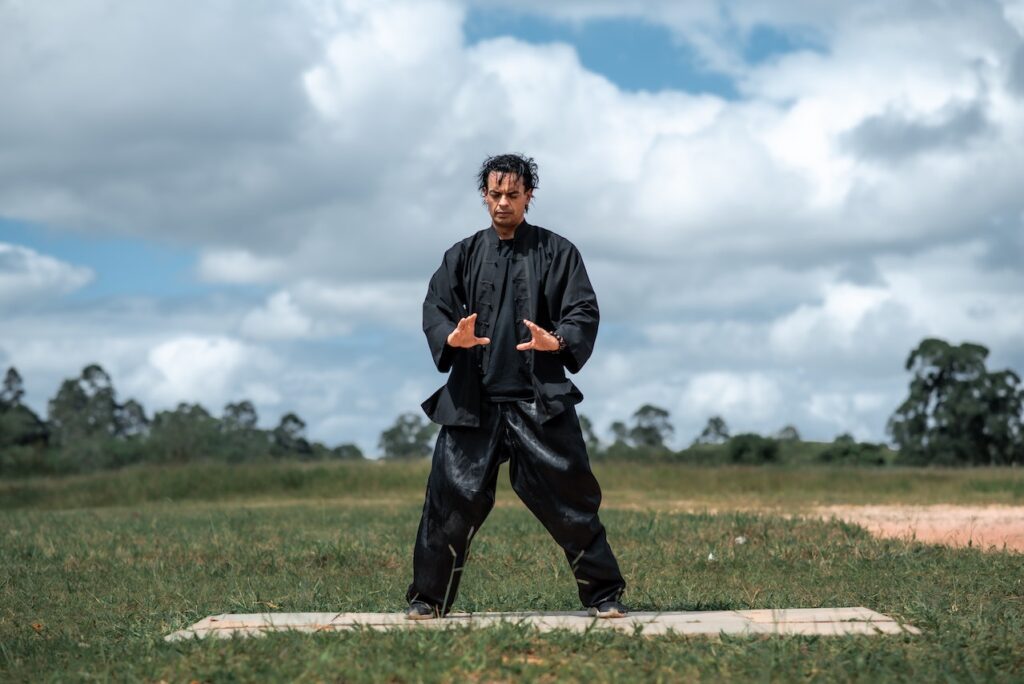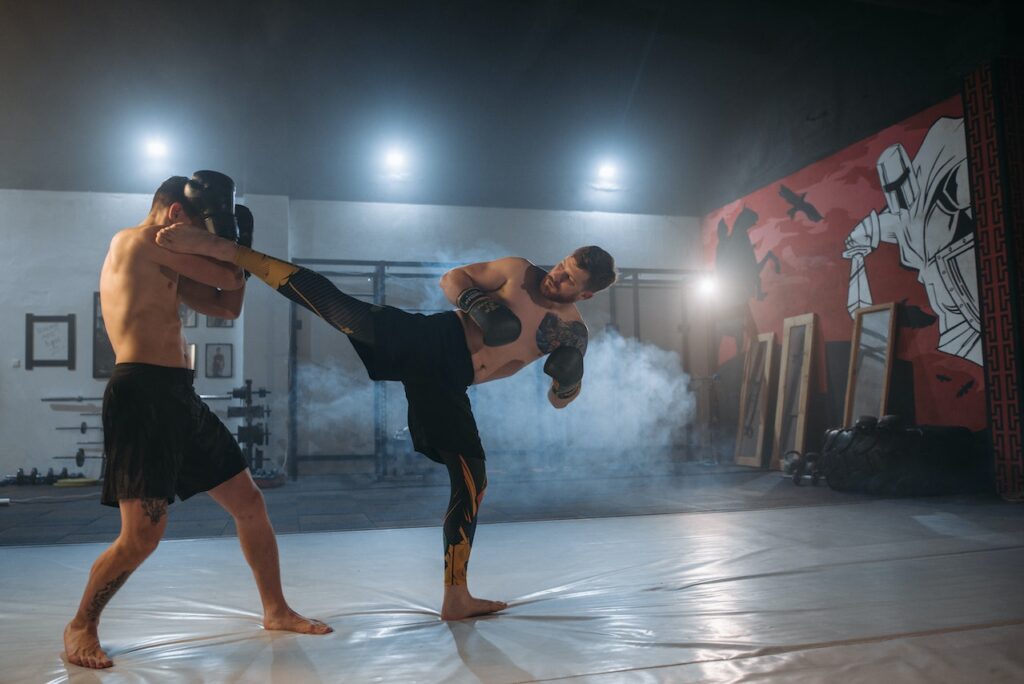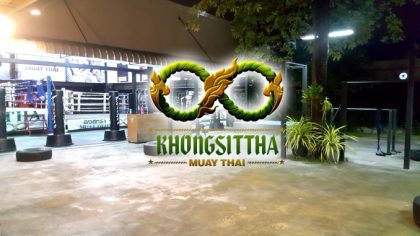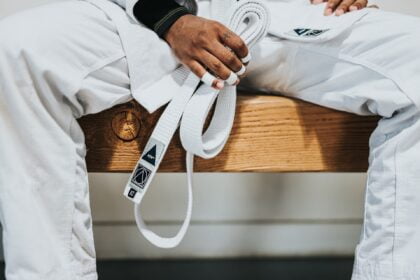
Zen in the Martial Arts by Joe Hyams dives into the connection between Zen philosophy and martial arts. Hyams illustrates how martial arts can serve as a means for personal growth. It also serves as a path to self-discovery and spiritual enlightenment. He shows us this through his anecdotes, personal experiences, and reflections.
Overview of the Author, Joe Hyams
Joe Hyams, the author of Zen in the Martial Arts, was a renowned martial artist and Zen practitioner. Born in 1923, Hyams began his martial arts training in his late teens. He went on to become a black belt in both judo and karate. He trained under some of the most respected masters in the field, including Ed Parker and Bruce Lee.

The Philosophy of Zen in Martial Arts
Zen in the Martial Arts explores the philosophy of Zen and its application in martial arts. Hyams draws on his own experiences in martial arts to show how Zen principles work. How, with these principles, one can enhance their training and mindset.
At the core of Zen philosophy is the concept of mindfulness. It means being aware of one’s thoughts, emotions, and actions, and being present in the moment. Hyams emphasizes the importance of cultivating this mindfulness in martial arts practice. Mindfulness allows practitioners to react and respond with clarity and efficiency.

The Importance of Mental Discipline in Martial Arts
One of the key teachings in Zen in the Martial Arts is the importance of mental discipline. Hyams explains that mastery of martial arts goes beyond physical techniques. It requires a disciplined mind. He emphasizes the need to train not only the body but also the mind. Mental discipline is essential for achieving peak performance and overcoming challenges.
Mental discipline involves developing focus and concentration. It also entails the ability to stay calm under pressure. Hyams provides practical guidance on how to cultivate these qualities. He provides various exercises and meditation techniques in the book. He also shares personal anecdotes from his own training. Hyams highlights the transformative power of mental discipline in martial arts.

The Role of Meditation in Martial Arts
Meditation plays a significant role in the practice of Zen and martial arts. Hyams explores the benefits of meditation and how it can enhance one’s martial arts training. Through meditation, practitioners can develop greater self-awareness and clarity of mind. Meditation gives us a deeper connection to our inner selves.
Hyams shares different meditation techniques that can be incorporated into martial arts practice. He teaches us breath control, visualization, and mindfulness meditation. He also emphasizes how regular meditation practice can help martial artists develop a calm and focused mind. This allows them to perform at their best during training and competitions.

The Connection Between Zen and Physical Techniques
Hyams also highlights the connection between Zen philosophy and physical techniques. He explains that Zen is not only about cultivating a peaceful mind. It is also about developing efficient and effective physical movements.
Hyams explores how martial artists can apply Zen principles to their physical techniques, such as strikes, kicks, and blocks. He introduces the state of “no-mind” or “mushin”. This state is where the body moves without effort and everything becomes instinctual. You achieve mushin by being present in the moment and letting go of attachment to outcomes.

The Concept of “No-Mind” in Martial Arts
The concept of “no-mind” is a central theme in Zen in the Martial Arts. Hyams explains that “no-mind” refers to a state of mind in which there is no conscious thought or effort. In this state, the practitioner’s body moves spontaneously and intuitively. It is without the interference of the thinking mind.
Hyams shares stories and insights from his own training to illustrate this state. He shows how the cultivation of “no-mind” can lead to greater skill and mastery in martial arts. He emphasizes that achieving “no-mind” requires dedicated practice. It also obliges the martial artists to have a deep understanding of Zen principles.

The Importance of Mindfulness in Martial Arts Training
Mindfulness, another key aspect of Zen philosophy, is essential in martial arts training. Hyams explores how mindfulness can improve focus and awareness. Mindfulness also boosts overall performance in martial arts.
By practicing mindfulness, martial artists can develop an acute awareness of their surroundings. This heightened awareness allows practitioners to anticipate and respond to their opponents’ movements. This awareness allows them to move with greater speed and precision.
Hyams provides practical exercises and techniques for cultivating mindfulness in martial arts training. For example, he gives us techniques such as breath awareness and body scanning. He also emphasizes the importance of incorporating mindfulness into daily life. Mindfulness can enhance one’s overall well-being and personal growth.

Lessons and Stories from the Author’s Experiences
Throughout Zen in the Martial Arts, Hyams shares many lessons and stories from his own experiences. These anecdotes offer valuable insights into the challenges, triumphs, and transformative power of martial arts practice.
Hyams recounts memorable encounters with renowned martial artists, including Bruce Lee. Through these interactions, he gained much wisdom from these practitioners. He also reflects on the personal growth and self-discovery that came with his journey. Hyams highlights the profound impact martial arts had on his life beyond the dojo.

Conclusion and Key Takeaways from Zen in the Martial Arts
In conclusion, Zen in the Martial Arts by Joe Hyams offers a comprehensive exploration of the intersection between Zen philosophy and the practice of martial arts. Through personal anecdotes, deep insights, and practical guidance, Hyams demonstrates how the principles of Zen can enhance one’s martial arts practice and everyday life.
Key takeaways from this book include the importance of mindfulness and mental discipline. The book also focuses on the cultivation of a calm and focused mind. Hyams emphasizes the transformative power of these practices. He encourages readers to apply them not only in their martial arts training but also in all aspects of life.
Whether you are a martial artist seeking to deepen your understanding or simply someone interested in the philosophy of Zen, Zen in the Martial Arts provides valuable insights and practical guidance for incorporating Zen principles into your life. It is a must-read for anyone looking to enhance their martial arts practice and embrace the wisdom of Zen.






